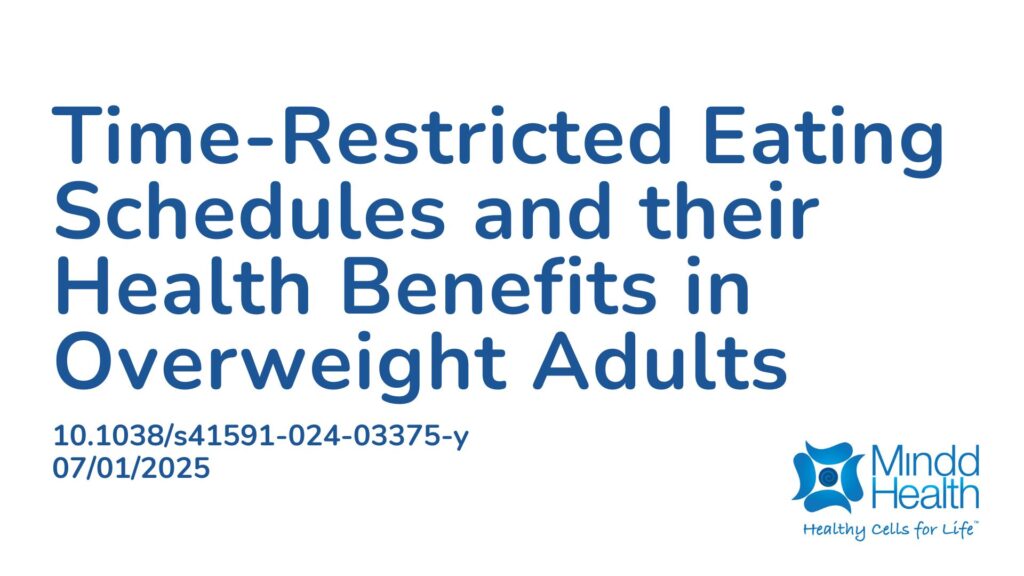Summary:
Obesity is a major health issue linked to higher risks of chronic diseases like diabetes, heart disease, and cancer. While energy-restricted diets can help with weight loss and health, people often struggle to stick with them long-term. Time-restricted eating (TRE) is a newer alternative where eating is limited to a set window (up to 10 hours) each day, with fasting for the rest. TRE is generally well-tolerated, easy to stick with, and leads to modest weight loss and slight health improvements for those who are overweight or obese. However, questions remain about its effects on certain fat stores, like visceral fat (fat around organs), and whether the timing of the eating window matters. This study aimed to compare three different TRE schedules (early, late, or self-selected eating windows) combined with a Mediterranean diet education program versus the Mediterranean diet alone over 12 weeks. The focus was on changes in visceral fat and overall health. 197 participants were randomized to one of the groups. No significant differences were found in visceral fat reduction between the TRE groups and the Mediterranean diet alone. All groups had high adherence, and there were no serious side effects. The study concluded that adding TRE doesn’t provide extra benefits over the Mediterranean diet in reducing visceral fat, however, calories were not accounted for. It is therefore possible that the TRE groups were not actually eating less, or were potentially binge eating as a result of TRE. Yet, the authors concluded that TRE is a safe and feasible approach for weight management.
Abstract:
The optimal eating window for time-restricted eating (TRE) remains unclear, particularly its impact on visceral adipose tissue (VAT), which is associated with cardiometabolic morbidity and mortality. We investigated the effects of three TRE schedules (8 h windows in the early day, late day and participant-chosen times) combined with usual care (UC, based on education about the Mediterranean diet) versus UC alone over 12 weeks in adults with overweight or obesity. The primary outcome was VAT changes measured by magnetic resonance imaging. A total of 197 participants were randomized to UC (n = 49), early TRE (n = 49), late TRE (n = 52) or self-selected TRE (n = 47). No significant differences were found in VAT changes between early TRE (mean difference (MD): −4%; 95% confidence interval (CI), −12 to 4; P = 0.87), late TRE (MD: −6%; 95% CI, −13 to 2; P = 0.31) and self-selected TRE (MD: −3%; 95% CI, −11 to 5; P ≥ 0.99) compared with UC, nor among the TRE groups (all P ≥ 0.99). No serious adverse events occurred; five participants reported mild adverse events. Adherence was high (85–88%) across TRE groups. These findings suggest that adding TRE, irrespective of eating window timing, offers no additional benefit over a Mediterranean diet alone in reducing VAT. TRE appears to be a safe, well-tolerated and feasible dietary approach for adults with overweight or obesity. ClinicalTrials.gov registration: NCT05310721.
Article Publication Date: 07/01/2025
DOI: 10.1038/s41591-024-03375-y






